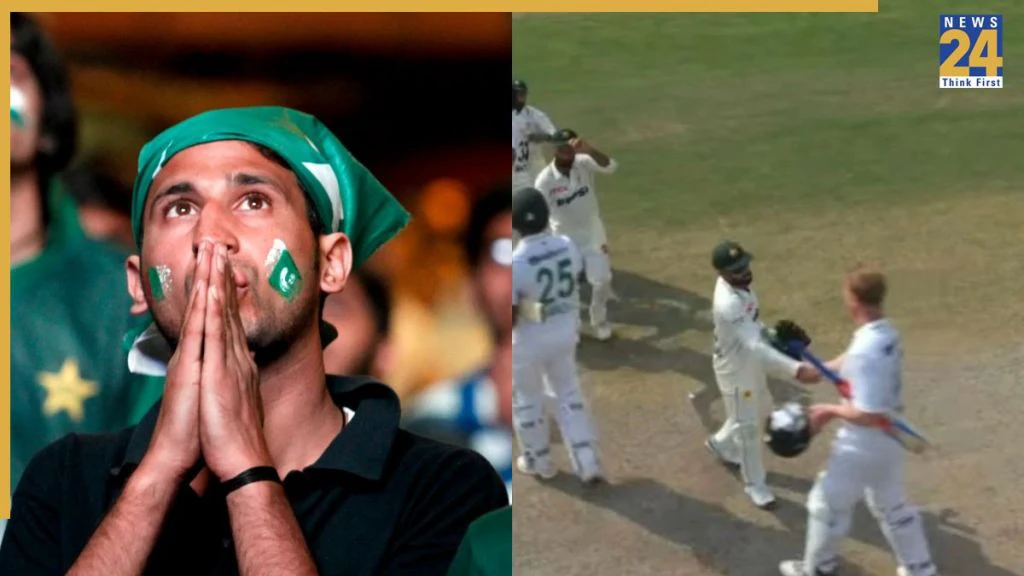It has been over two weeks since the Asia Cup 2025 concluded, but the aftershocks of that high-voltage India-Pakistan final continue to ripple through the cricketing world – particularly from across the border.
During the recently concluded first Test between Pakistan and South Africa in Lahore, a fresh spark was added to an already exhausted controversy, when former Pakistan cricketers turned commentators Ramiz Raja and Aamir Sohail reignited the now-infamous “handshake row”.
The issue? A simple post-match gesture or the lack of it – during the Asia Cup.
A Post-Test Dig That Was Hard to Miss
Following Pakistan’s win over South Africa in the Lahore Test, both teams exchanged the customary handshakes after the match – an image that should have been a symbol of sporting spirit. Instead, it became a platform for another thinly veiled swipe at India.
As cameras panned to the players shaking hands, Aamir Sohail remarked in the commentary box:
“Good to see both teams shaking hands, it’s getting out of fashion these days.”
To which Ramiz Raja quipped,
“It’s getting out of hands.”
The exchange, though brief, was laced with sarcasm – clearly referencing the Asia Cup final in which Team India chose not to shake hands with Pakistan players after their emphatic victory. The Indian side cited security and political tensions following the Pahalgam terror attack in April 2025 as the reason for their decision, opting instead for minimal interaction throughout the tournament.
The Asia Cup Final – A Night Pakistan Won’t Forget
India’s dominant win in the final of the Asia Cup not only secured them the trophy but also, seemingly, struck a nerve that hasn’t settled in the Pakistan camp.
The final was already played under heightened tension, with political undertones running deep. India had refused to engage in any post-match gestures with the Pakistan squad throughout the tournament – including in the group stage, Super 4s, and the final, a decision reportedly made in light of the Pahalgam terror incident. While the Indian team maintained a dignified silence, the move was not received well by the Pakistan side.
The Pakistan Cricket Board (PCB) went as far as to lodge formal complaints with the ICC, targeting match referee Andy Pycroft and citing poor match conduct. Not once, but twice, the PCB approached the governing body. Both complaints were rejected outright by the ICC.
Tensions flared further when India, in protest, refused to accept the trophy from Asian Cricket Council (ACC) President Mohsin Naqvi, who had ties to Pakistan’s government. In a bizarre twist, Naqvi was seen abruptly leaving the stage with the trophy in hand, leaving a cloud of confusion behind.
Time to Move On – But Has Pakistan?
While the rest of the cricketing world, including the Indian team, has turned its focus to the present – namely India’s white-ball tour of Australia – Pakistan’s cricketing voices seem stuck in the past. What should have been a proud moment after their Test win over South Africa turned into another opportunity to air grievances and rekindle a dispute many feel is better left behind.
As an observer of the game, one has to wonder: Is Pakistan’s cricket narrative becoming too entangled in off-field drama?
On the field, Pakistan still boasts immense talent and passion. But moments like these, when former players, now in influential positions, choose to fan old flames – do little to foster healthy competition or international goodwill. India, for their part, has maintained a firm stance on their reasons for the handshake boycott and has refrained from making any further public comments.
Cricket Needs Unity, Not Undercurrents
Cricket is no stranger to geopolitical tensions, especially in the subcontinent. But the sport has also, time and again, shown its ability to rise above political divides. Handshakes, ceremonies, and exchanges are symbolic – yes – but they hold weight. When they’re weaponized, the game loses some of that symbolism.
As Pakistan celebrates a strong Test win, perhaps it’s time the conversation shifted back to cricketing merit and future goals. Continually looking back at a lost final, and at who didn’t extend a hand, is starting to feel less like disappointment and more like deflection.
For now, the Asia Cup is over. The focus should be on the cricket that lies ahead. The game deserves it. So do the players.
